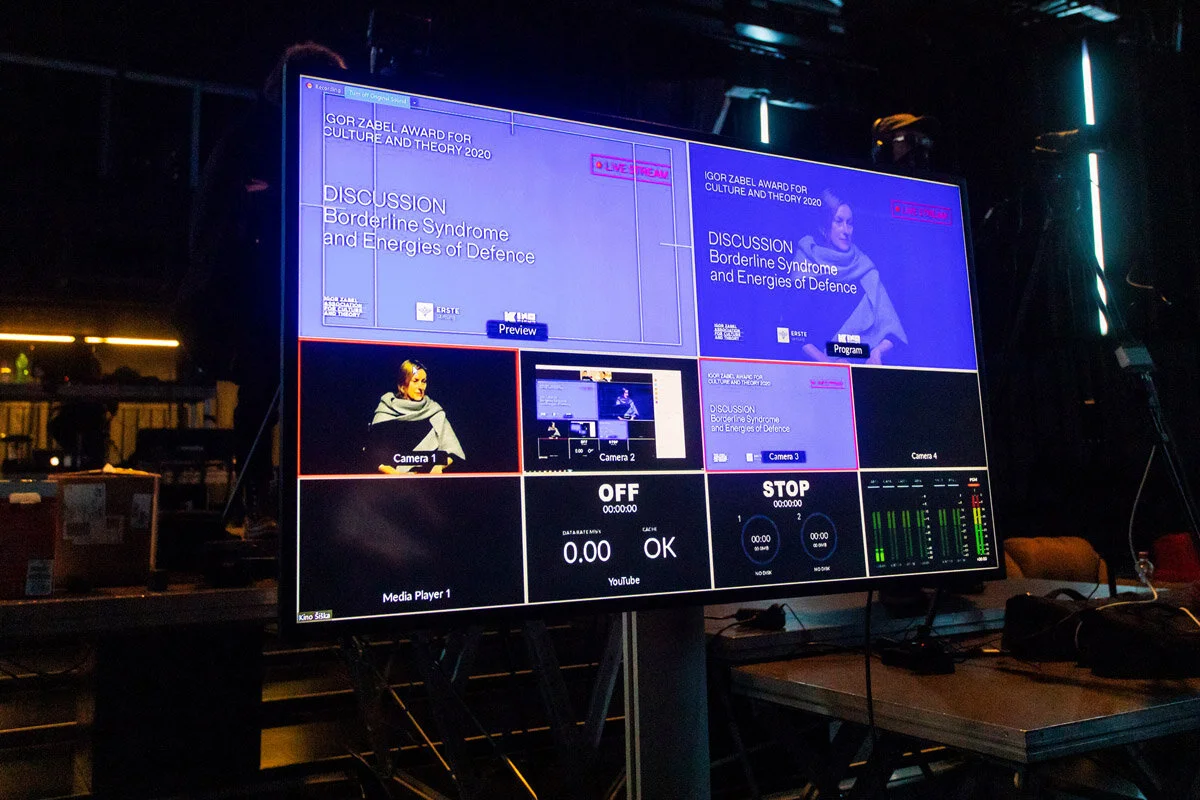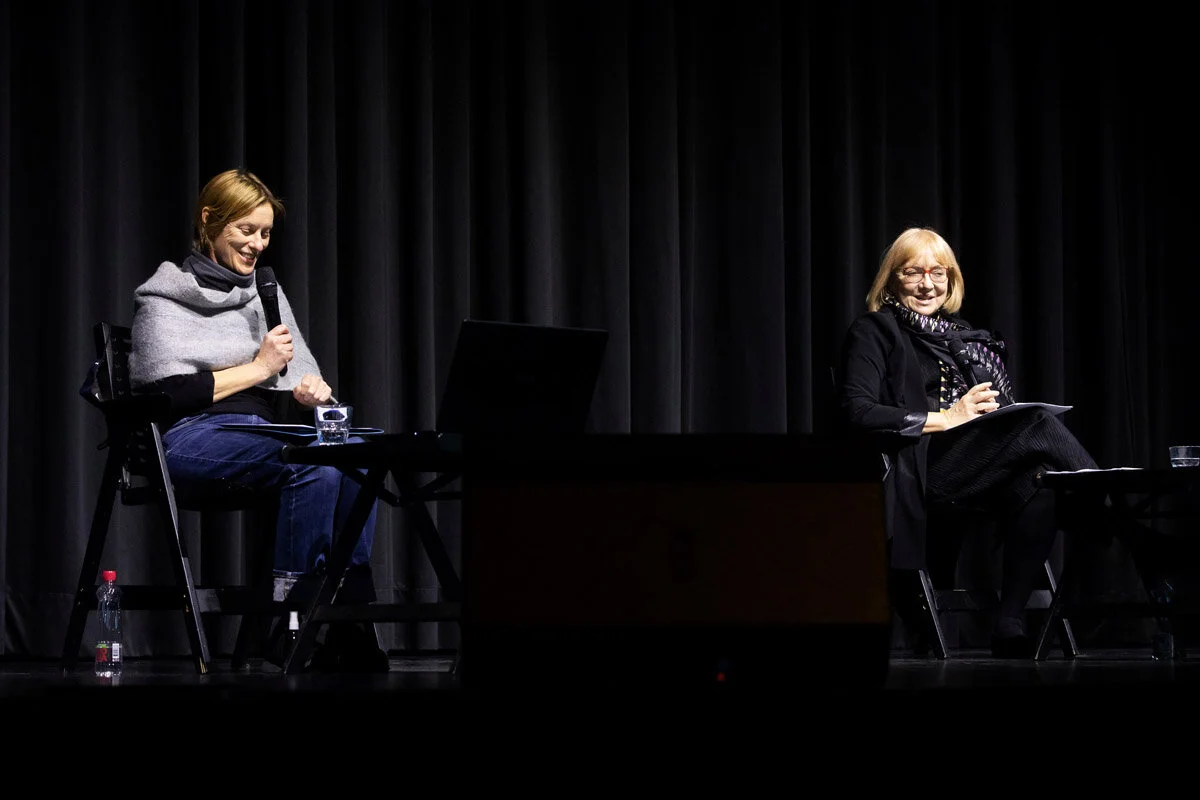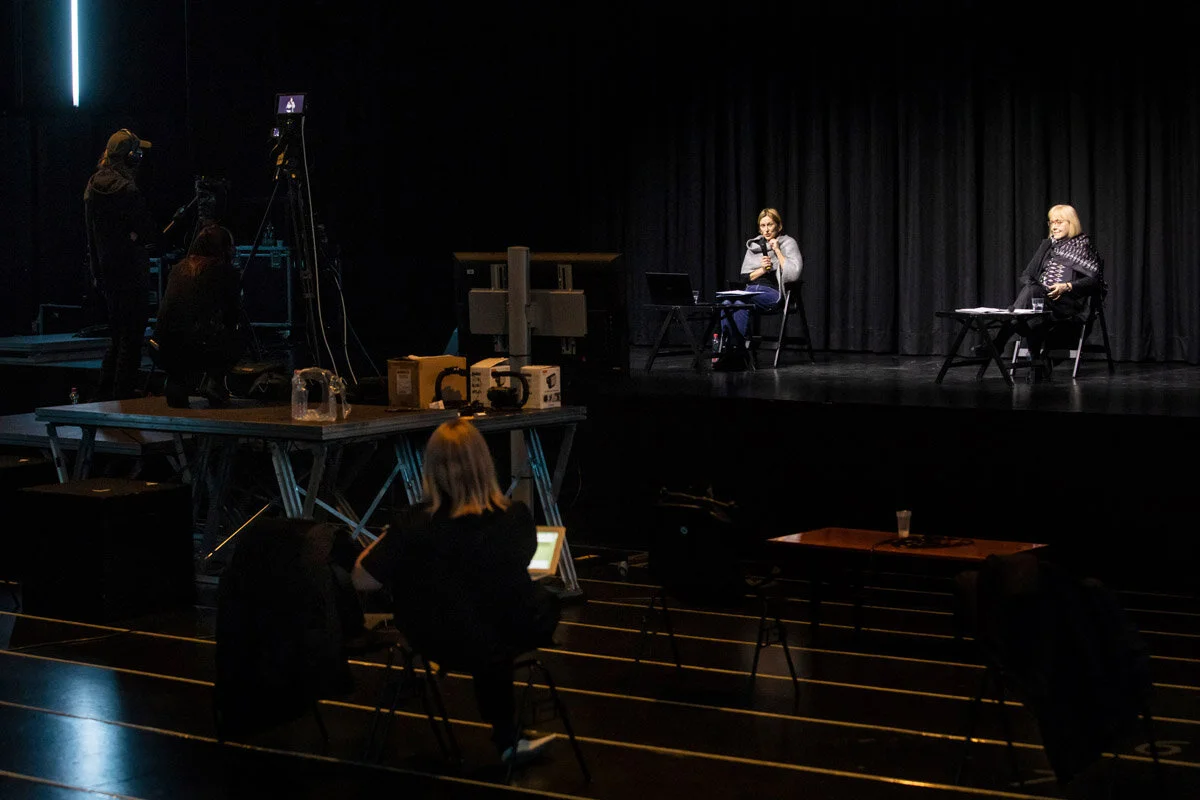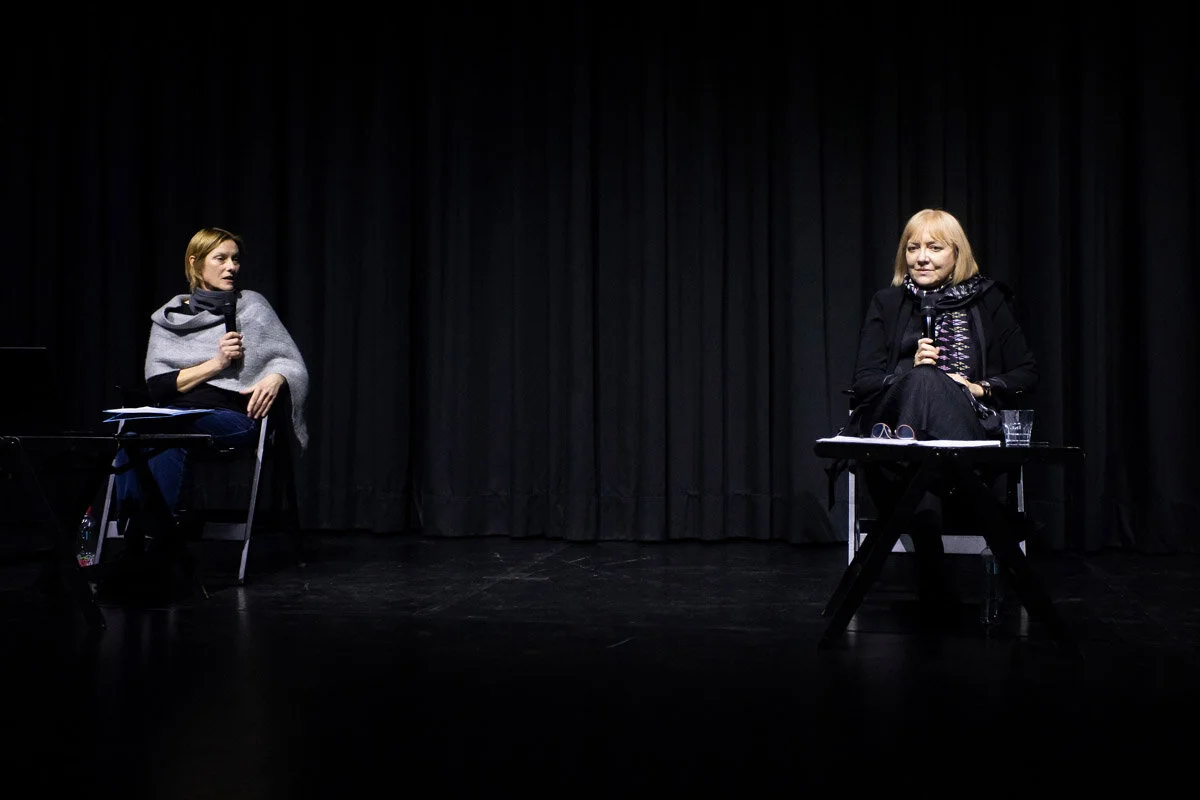












Borderline Syndrome and Energies of Defence
Twenty years after Ljubljana hosted the European Biennial of Contemporary Art Manifesta 3, we return with Šejla Kamerić, Kathrin Rhomberg, and Renata Salecl to its central theme – “borderline syndrome and energies of defence” – and look at it through the lens of today’s realities. The discussion, moderated by Urška Jurman, focuses on questions of identity diffusion and defence, new walls being erected across Europe and its mental map, on issues faced by individuals and our society in relation to the pandemic and finally, the question about the borderline between art and the socio-political reality.
Programme
In her presentation, Šejla Kamerić will talk about art that questions imposed identities and defined invisible borders as well as how her artwork EU / Others, exhibited at the Manifesta 3 (2000, Ljubljana), fits into today’s political spectrum.
The contribution will shed light on the curatorial team’s reasons for borrowing from the terminology of psychology for the title of Manifesta 3 in Ljubljana: “Borderline Syndrome”. She will also pose the question of whether the specific approach chosen for the European Biennial of Contemporary born in the aftermath of the fall of the Berlin Wall was actually sufficient for addressing the profound changes that have affected the political and cultural landscape since the 1990s.
The presentation will highlight the concept of borderline syndrome from the viewpoint of today’s socio-political reality while paying special attention to societal and individual issues brought about by the pandemic.
Speakers and moderator
Šejla Kamerić
Artist based in Sarajevo/Berlin, Šejla Kamerić has received widespread acclaim for the poignant intimacy and social commentary in her art projects. During the siege of Sarajevo, she graduated from the High School for Applied Arts and enrolled in the Academy of Fine Arts in Sarajevo, graduating from the Graphic Design department after the end of the war.
Read
She works with media such as film, photography, objects or text. Kamerić’s works have been on view in solo exhibitions at prestigious art institutions such as mumok in Vienna, the Centre Pompidou in Paris, the Museum of Contemporary Art in Zagreb, the MACBA in Barcelona, MG+MSUM in Ljubljana, the Museum of Contemporary Art in Belgrade, the Sharjah Art Foundation – Sharjah Art Museum, and CAC Contemporary Art Centre in Vilnius. Kamerić’s works have been included in numerous collections worldwide, including the Tate Modern in London, the Musée d’Art Moderne de la Ville in Paris, the MACBA in Barcelona, the Museum Boijmans Van Beuningen in Rotterdam, the Museum of Contemporary Art in Zagreb, Kontakt. The Art Collection of Erste Group and ERSTE Foundation in Vienna; the Art Collection Telekom in Bonn, the Vehbi Koç Foundation Contemporary Art Collection in Istanbul, and the permanent exhibition of the Memorial Center Potočari in Srebrenica.
Kathrin Rhomberg
Independent curator based in Vienna, Kathrin Rhomberg served as curator and head of the exhibition office at Secession in Vienna, Director of the Kölnischer Kunstverein, Cologne, and has been Chairwoman and Artistic Director of the Kontakt Collection since 2014.
Read
She was the curator of the Czech and Slovak Pavilion (Roman Ondak) at the 53rd Venice Biennale (2009), the 6th Berlin Biennale (2010), and the Pavilion of the Republic of Kosovo (Petrit Halilaj) at the 55th Venice Biennale (2013). Among other projects, she has co-curated the following: Manifesta 3, Ljubljana (2000), Projekt Migration, Cologne (2002–06), Former West – Documents, Constellations, Prospects, HKW, Berlin (2012), the Július Koller retrospectives at the Museum of Modern Art in Warsaw (2015) and mumok, Vienna (2016), Edi Hila: Painter of Transformation at Museum of Modern Art in Warsaw and the National Gallery of Arts in Tirana (2018). She is a visiting professor at the University of Applied Art in Vienna.
Renata Salecl
Slovenian philosopher, sociologist, and legal theorist, Renata Salecl is a senior researcher at the Institute of Criminology at the University of Ljubljana’s Faculty of Law, and holds a professorship at Birkbeck College of the University of London.
Read
She has been a visiting professor at the London School of Economics, lecturing on the topic related to emotion and law. Among her books are On Anxiety (Routledge, 2004), Choice (Profile Books, 2010), and recently published A Passion for Ignorance: What We Choose Not to Know and Why (Princeton University Press, 2020). She has written on contemporary art and has contributed catalogue essays on artists as Jenny Holzer, Antony Gormley, Sarah Sze, and Francis Bacon. In 2000, she conceived a conference entitled “Borderline Syndrome” as part of Manifesta 3 in Ljubljana.
Urška Jurman
Graduated in art history and sociology of culture at the Faculty of Arts of the University of Ljubljana. She works as an editor, art writer, and curator.
Read
Graduated in art history and sociology of culture at the Faculty of Arts of the University of Ljubljana. She works as an editor, art writer, and curator. In 2000 she coordinated the research project Manifesta in our Backyard. Since 2013, she has been working as a programme manager of the Igor Zabel Association for Culture and Theory.
About the event
This discussion is organized by the Igor Zabel Association for Culture and Theory in collaboration with Kino Šiška, supported by the ERSTE Foundation and part of a longer-term collaboration with the < rotor > association for contemporary art in Graz.
The event will be streamed live online and will take place in English.